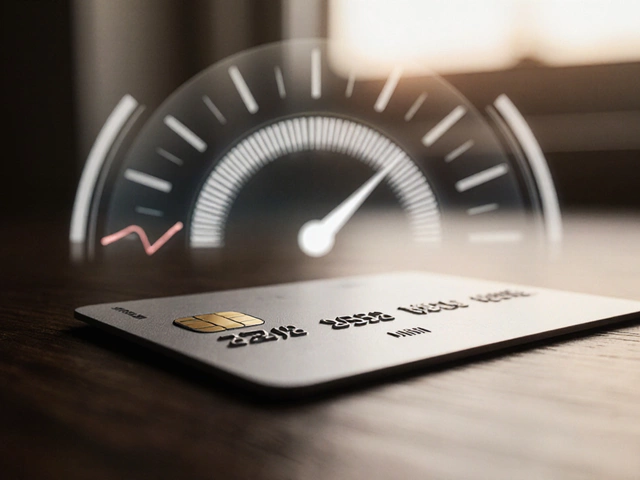
Navigating the world of online banking can often be a maze, especially when unexpected charges appear on your account statement. One such charge that often leaves State Bank of India (SBI) customers puzzled is the enigmatic 118 rupee fee. A seemingly small amount, yet when accumulated, it can add up to a significant cost over time.
This fee is not just a random number plucked from thin air. It has its roots in the services provided by the bank, including processing fees and specific banking operations that require additional resources. For customers, understanding what triggers this charge and how it fits into their banking habits is essential to maintaining control over their finances.
In this article, we take a deep dive into the specifics of the 118 rupee charge. We'll unpack the types of transactions and situations that might prompt this fee, provide clarity on the banking services it covers, and offer practical advice on how you can potentially steer clear of these costs. Armed with this knowledge, you're better equipped to handle your SBI account effectively, strategizing to save on fees wherever possible.
- The Reason Behind the Charge
- Services Covered by the Charge
- Ways to Avoid Unnecessary Fees
- Tips for Managing Your SBI Account
The Reason Behind the Charge
State Bank of India, better known as SBI, stands as one of the oldest and most trusted financial institutions in India. With its vast network of branches and a significant number of customers, it provides a range of services that cater to different banking needs. However, like many banks worldwide, there are certain fees that customers might encounter, such as the SBI charges of 118 rupees. This charge often leads to confusion, but it's important to understand why it exists in the first place. Essentially, the 118 rupee fee can arise from several banking activities such as the issuance of a duplicate account statement or cheque book, the processing of demand drafts, or even in instances where there’s a shortfall in maintaining minimum account balance requirements.
The bank incurs expenses for maintaining infrastructure, ensuring security for online transactions, and providing customer services, among other factors. Quite often, these banking fees are not simply random charges but are calculated based on the cost the bank incurs for delivering particular services. For instance, delivering detailed account statements or transaction reports involves administrative processes, which the bank offsets through specific charges. In this sense, the fee acts as a mechanism to sustain the level of service SBI endeavors to provide to its clients nationwide.
"The charges are aligned with industry standards and are intended to make the digital experience seamless. It's essential to be aware of these to better manage your banking habits," explains Rajeswari Srinivasan, a financial analyst.It's crucial for customers to stay informed about these charges by reading through the bank's schedule of charges, which SBI periodically updates. A common feature of modern banking, fees such as these encourage customers to use digital methods, which not only saves time but, in some cases, may even waive certain charges. The key is understanding these charges and making informed decisions regarding your banking practices.

Services Covered by the Charge
The SBI charges often appear as a line item on your bank statement, and it's not just an abstruse bank requirement. It typically aligns with certain specialized services that customers may not always realize they're utilizing. Firstly, one of the frequent origins of this 118 rupee charge stems from processing fees associated with remittances. When you electronically transfer money, especially across borders or between certain bank networks, the banking infrastructure in place requires careful handling and processing, which subsequently incurs a fee.
Moreover, if you're subscribing to value-added services such as SMS alerts or requiring physical copies of statements, these too might contribute to the fee structure. Each of these services, though indispensable to numerous customers, represents a segment of banking that necessitates operational costs, which banks like the State Bank of India must recuperate. It's worth noting how these fees can enable the bank to sustain technology upgrades and enhance cybersecurity measures—a vital aspect of online banking in India today.
Account Maintenance and Management
An often-overlooked reason could be the charges related to maintaining certain types of accounts. Some SBI accounts come with requirements such as maintaining a minimum balance or limits on the number of free transactions every month. Falling short on these criteria can lead to the deduction of related service charges. These are set to encourage customers to manage their accounts within specific guidelines, ensuring the bank can provide a wide array of customer-focused services while maintaining a stable financial health of its offerings. As quoted from a leading financial analyst,
"Bank fees, albeit small, contribute significantly to maintaining the integrity and efficiency of banking operations by streamlining processes and covering essential functions."
In addition to these, one should be mindful of fees relating to late payments on card bills, overdrafts, or additional services like card replacements. Any form of manual intervention by banking personnel to manage your account can result in a charge. It's an understandable fee when you consider that personalized help or corrective actions require manpower and logistic resources. For those unsure about why these charges appear, regular account reviews through statements or online banking portals can bring clarity. Also, checking with customer service for a detailed breakdown of where the 118 rupee charge is being applied can be enlightening.
| Service | Fee Applied |
|---|---|
| Electronic Remittances | Yes |
| SMS Alerts Subscription | Yes |
| Physical Statement Requests | Yes |
In summary, while the fee might seem enigmatic at first glance, it's grounded in covering the operational costs behind various banking conveniences we often take for granted. Addressing these wisely with strategic bank engagements can lead to a significant improvement in your monetary management, potentially creating room for savings.

Ways to Avoid Unnecessary Fees
In the intricate web of online banking with the State Bank of India, avoiding unnecessary fees like the notorious SBI charges can be achieved with a few mindful strategies. Let's break it down so any SBI account holder can smartly dodge these fees without hassle. First, familiarizing yourself with the fee structure is crucial. Most people stumble upon unexpected charges simply because they are unaware of the bank's policies. This means taking a proactive approach by reviewing banking terms and staying updated on any changes or announcements made by the bank. Regularly check the SBI website or visit your nearest branch to ask questions about the specific services that incur charges.
Another effective strategy is to maintain the required minimum balance in your account. Often, account holders ignore balance maintenance, leading to penalty charges, which typically include the infamous 118 rupee fee. Make sure to know the minimum balance requirements specific to your account type and consistently keep your balance above this threshold. You might set up alerts through online banking to notify you whenever your balance falls below the required amount, giving you a head start to top it up and avoid the fee.
Managing your banking transactions is another key area to focus on. Keep track of transactions that are a common trigger for these fees. For example, excessive ATM withdrawals might attract additional charges if you surpass the free withdrawal limit offered by the bank. It might be wise to withdraw the cash you need in fewer larger transactions rather than several small ones. The bank provides detailed monthly statements showing all transactions and any related charges; reviewing these closely can give you insight into avoiding similar charges in the future.
For tech-savvy customers, utilizing the bank's online and mobile banking facilities is an excellent way to monitor your account actively. These platforms provide a wide range of services that save you time and help cut costs. Essentially, they sometimes offer reduced fees for specific transactions when done online compared to over the counter. Setting up automatic payments for regular transfers or bill payments via your online banking portal ensures you don't miss payment deadlines, which can incur late fees.
Additionally, if you're managing savings alongside expenses, linking your savings and checking accounts can save you from overdraft fees. Whenever you make a payment that exceeds your checking balance, having this setup allows the shortfall to be automatically covered from your savings balance. This avoids transaction declines and resultant transaction fees, which can subtly accumulate over time. It is worth having a conversation with your bank representative to explore which accounts need to be linked for such benefits.
According to Consumer Reports, "Keeping a close eye on your bank fees not only saves money but also manages your financial health better." Never shy away from asking about fees when opening new accounts or when stepping into unfamiliar banking activities.
To visualise how these strategies could potentially enhance your banking strategy, consider the below table that estimates savings based on avoiding common charges:
| Scenario | Monthly Fees Avoided | Annual Savings |
|---|---|---|
| Balance Maintenance | 118 | 1416 |
| Avoided ATM Usage Fee | 100 | 1200 |
| Online Payment Usage | 50 | 600 |
Ultimately, with an informed approach and the correct strategies in place, evading these small but impactful banking fees is within reach. Keep your financials close at hand, and you'll confidently navigate the sweeping waters of SBI's policies, ensuring your hard-earned money stays where it belongs: with you.

Tips for Managing Your SBI Account
Managing your State Bank of India (SBI) account efficiently is crucial to avoid any unsolicited charges, such as the mysterious 118 rupee fee. With a bit of foresight and planning, you can handle your account without falling into unexpected traps that the banking world may set. The first step in this direction is keeping a close eye on your account activity. Regularly logging into your online banking portal or using the SBI mobile app to monitor transactions can make a huge difference. It helps you catch any unrecognized or unnecessary transactions that may lead to charges, giving you a chance to dispute them promptly. Moreover, understanding the bank’s fee structure is essential. Familiarize yourself with the terms and conditions of your account, as well as any changes to the charging policy. This ensures you are less likely to be caught off guard by any fees that are clearly outlined in the agreement.
Having a good understanding of transaction limits and service charges related to your account can save you from numerous headaches. For instance, many customers are unaware that exceeding a monthly limit on ATM withdrawals often results in additional fees. Knowing such specific, accurate known facts is vital to planning your banking activities. It's also a wise practice to maintain the minimum balance required in your account to avoid penalty charges. Many users forget that failing to meet these requirements can quickly result in unwanted deductions. Pay close attention to SMS alerts or email notifications from the bank regarding your balance status and other account updates, as they are your first line of defense against unwanted charges.
A prudent approach to bank visits can also be beneficial. Try to consolidate your banking needs into fewer visits, reducing the number of interactions that could incur service charges. Whenever possible, opt for online services which are often free of cost compared to over-the-counter operations. Additionally, SBI offers various waivers on charges if digital banking services are used frequently. Embracing this can help minimize potential fees while promoting ease of use. Take advantage of any programs or financial planning tools that SBI offers to help keep your transactions under control.
Another significant tip for managing your SBI account is setting up automated payments and transfers. This can help avoid any late fees or charges for missed payments. Plus, automation reduces the stress of remembering due dates, allowing you to focus on more critical aspects of your financial planning. However, always ensure that you have sufficient funds in your account before automating your bills, as failed transactions can lead to penalty charges from both the bank and service providers. Finally, don't hesitate to reach out to SBI's customer service if you have questions or concerns about potential charges. They can provide valuable insights and possibly guide you through steps to prevent unnecessary fees.








Write a comment